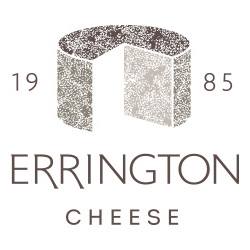
Regular readers of the 5pm Dining blog will be aware of the difficulties faced by Errington Cheese after Food Standards Scotland issued a ban on their products.
The newly formed Committee for the Defence of Artisan Food (CDAF) has come to the defence of the South Lanarkshire’s cheesemaker and claims that ‘Bad science and bias is destroying jobs and threatening Scotland’s reputation as a “Good Food Nation”.’
The Committee for the Defence of Artisan Food announced their message to Food Standards Scotland in a press release this morning.
The committee was set up by leading names on the Scottish food scene to highlight threats to small-scale food production posed by the Errington Cheese case.
Respected cheesemaker
A public meeting in Edinburgh on 2 February (details below) will debate Food Standards Scotland’s (FSS) closure of this much-respected Lanarkshire cheesemaker.
Speakers will explain how FSS is allegedly costing taxpayers hundreds of thousands of pounds, putting rural jobs at risk, and threatening the entire Scottish craft cheese industry.
‘If FSS kills off Scottish raw milk cheesemaking, and all the jobs and skills that go with it, then the foreign cheese industry will simply move in and take the business. We will continue to eat raw milk cheese but it will be made in mainland Europe, not by our own Scottish artisans. Traditional products offer a future to many Scottish farmers. The authorities must apply up-to-date scientific understanding, proportionality, and realism to their policing,’ says author and CDAF member Joanna Blythman.
Much-loved cheeses
CDAF member and food journalist Alex Renton continues:
‘In the name of safety, a mix of poor science and prejudice is putting a great Scottish food industry at risk of extinction. Food Standards Scotland’s pursuit of Errington Cheese, without any evidence of any real risk from its much-loved products, is making our claim to be a country that supports great food look ridiculous.’
‘Errington Cheese has been out of business seven months, local employment has suffered and a five-figure sum in legal bills already racked up. During this time the FSS have not only, in my opinion, treated the Erringtons very badly, but also created a culture of fear among artisan food producers; a very sad and unnecessary state of affairs. It’s time for FSS to call off the hounds,’ says CDAF member and director of the Scottish Food Guide, Wendy Barrie.
FSS – headed by civil servant Geoff Ogle – has banned all Errington cheeses since July 2016, after an outbreak of E-coli O157 poisoning in Scotland caused a fatality.
According to the press release, FSS ‘has not established any robust scientific or epidemiological link with the cheeses made by this award-winning company.
‘Independent bacteriological and genome tests have cleared the implicated batches of Errington cheeses of carrying any pathogenic (disease-causing) E-coli O157 strain, and exposed worrying flaws in FSS’s grasp of science.’
Taxpayers’ money
Earlier this month, the company’s Corra Linn and Lanark Blue cheeses were detained for sampling under the Hygiene Regulations 2006. Testing those cheeses will cost South Lanarkshire taxpayers an estimated £160,000.
Meanwhile, sales of Scottish artisan cheese through London specialist shops are now said to be down at least 60%, as other Scottish cheesemakers withdraw unpasteurized products for fear of being targeted by FSS.
Errington has essentially no right of appeal, a state of affairs that raises major questions about what the press releases refers to as ‘the draconian powers and extremely limited accountability of FSS’.
The taxpayer-funded agency was set up in 2015 as a non-ministerial office, part of the Scottish Administration, alongside, but separate from, the Scottish Government. The FSS Board – a chair, and seven part-time members appointed by Scottish Ministers – nominally provides it with ‘strategic direction, oversight and governance’.
Further information:
On Errington Cheese
The Errington family has been making its award-winning cheeses in Scotland since 1984. Its products are widely seen as the jewels in the crown of Scotland’s artisan cheese portfolio, and have greatly enhanced Scotland’s reputation for fine food at home and abroad.
On the independent scientific tests
Microbiological tests carried out by the Actalia laboratory in France, which represents the gold standard for testing of dairy products in Europe, showed that no toxic strain of E. coli was present in any of the cheeses FSS tested.
Professor Hugh Pennington, Emeritus Professor of Bacteriology at Aberdeen University, and the UK’s leading authority on E.coli O157, has reviewed the tests carried out on behalf of FSS and concluded that it has provided ‘no microbiological evidence’ to link it to the outbreak.
He says that none of the tests were positive for the strain of bacteria responsible for the outbreak.
An accredited team of health inspectors that has thoroughly examined the Errington premises could find no fault with its hygiene practice.
On the safety of raw milk cheese
The press release goes on to state that ‘Raw milk cheese is a safe food. The latest, most extensive testing was conducted by the US Food and Drug Agency. In 2016 it bought 1,606 raw milk cheeses and tested them for food poisoning pathogens. It found no toxic or pathogenic strains of E.coli in any of these cheeses. The FDA concluded that the overall pathogenicity (presence of food poisoning bugs) in this category of cheese was less than 1%, which compares very favourably to many other categories of food we consume daily’.
On the Committee for the Defence of Artisan Food
CDAF is a new group of high profile food lovers, chefs, and experts set up to ‘support and defend small businesses and artisans producing real, healthy, small-scale foods against any arbitrary, unreasonable, disproportionate actions by food and/or public health authorities.’
Committee members:
Wendy Barrie, Director Scottish Food Guide/Scottish Cheese Trail, writer/cook
Fred Berkmiller, Chef proprietor, L’Escargot Bleu & L’Escargot Blanc restaurants
Joanna Blythman, journalist and author
Pamela Brunton, chef/co-owner, Inver Restaurant, Argyll
Jeremy Dixon, fine food restaurant supplier
Rachel Hammond, Butcher/Charcutier
Ben Reade, Chef, Edinburgh Food Studio
Donald Reid, Lecturer in Gastronomy/Food and Drink Editor, The List
Alex Renton, Journalist and author
Caroline Rye, Chair of Slow Food Edinburgh
Christopher Trotter Fife Food Ambassador and writer
On the CDAF public meeting
Thursday 2nd February 2017, at 7pm, in The Sanctuary, at Augustine United Church, 41-43 George IV Bridge, in Edinburgh. Entry free.
Speakers include:
Humphrey Errington, founder of Errington Cheese
Wendy Barrie, Director Scottish Food Guide and Scottish Cheese Trail
Pamela Brunton, Chef and co-owner of the award-winning Inver Restaurant
Joanna Blythman, Food journalist and author
Dr Colin Fink, Microbiologist
Dr Ronan Calvez, Microbiologist
